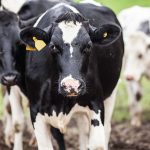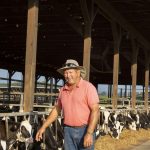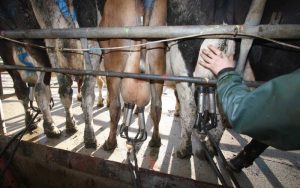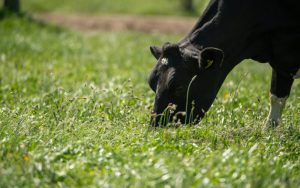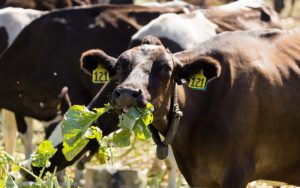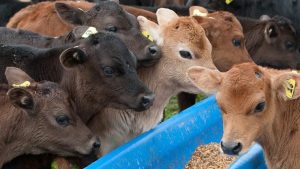
The Government’s announcement of a border exception for 200 dairy workers was initially criticised as too small, because the sector was short of 2000 to 4000 workers.
But Dairy NZ says only two international workers have arrived in New Zealand on class exception visas. All the others are still waiting for an MIQ slot.
Agriculture Minister Damien O’Connor blames the Delta strain of Covid-19 for the small number of workers who have made it through.
“The pathway out of this current situation is for New Zealanders to get fully vaccinated as soon as possible.”
Dairy industry advocates tell a story of a disconnect between DairyNZ, the Ministry of Primary Industries, Immigration NZ, and the Ministry of Business Innovation and Employment (MBIE).

O’Connor and the Ministry of Primary Industries announced the exemptions, in agreement with DairyNZ, they specified annual salary thresholds.
But when Immigration NZ enforced this announcement it relied on a per-hour median wage rate, which ruled out many of the workers the agricultural sector wanted to bring through.
Even where workers met those criteria, many weren’t able to get MIQ spots.
The Government announced its dairy worker border exemptions in June, but DairyNZ strategy and investment leader for farm performance Nick Robinson says the previously-agreed to conditions around salaries and wages were changed after the decision went live.
“This caused a lot of frustration and extra stress for farmers, which we made clear to the Government.”
Those who qualified were then unable to make it through MIQ because the border exemptions were not linked to MIQ slots.
O’Connor says the Delta outbreak has meant there are fewer MIQ rooms available for incoming travellers, while MBIE, which oversees MIQ, says dairy workers should ask Government agencies to sponsor an application under its Time Sensitive Travel allocation.
The Regions Immigration adviser Ben De’Ath says the current international talent pool of dairy workers is not made up of people who are qualified for work in higher wage brackets.

Existing migrant dairy workers, of whom De’Ath has 2200 on his books, work for an average of $25.05 per hour once all of their hours are taken into account.
Farmers and others have called the migrant worker staff shortage a safety and environmental disaster waiting to happen. The sector has not only suffered from fewer workers coming in, it has also experienced an outflow of workers thanks to issues with the immigration system and residency opportunities overseas.
Still, the industry has managed to find people to take up these border exemptions, it just has not been able to find the MIQ places for them.
Robinson says the allocation of 50 farm assistants has been filled and DairyNZ has received 95 applications for farm assistant and herd manager/assistant manager positions. Managerial roles at $44.23 per hour make up the other 150 allocations.
He says Immigration New Zealand has issued 17 visas under these border exemptions and expects it to issue 44 invitations to apply for visas.
“DairyNZ continues to push for dedicated MIQ spaces for dairy class exception workers. We are looking for additional support from the government to smooth the path for our international workers.”
Federated Farmers immigration spokesperson Chris Lewis says many dairy workers have given up on coming to New Zealand because they couldn’t line up flights with an MIQ booking.
Lewis wants border exemptions to be tied to an MIQ allocation, and says bringing in migrant dairy workers is a win-win.
The local industry gains skills and innovation, while extra hands on the farm allow farmers more time off.
Right now, rural insurance claims are growing because low staffing levels mean more farmers are being forced to make risky health and safety decisions.

“Little things catch up when you’re doing shortcuts. They have no option. It’s not because they’re bad people.”
Lewis also argues rural kids are less likely to follow in the footsteps of their parents if all they see are their parents “burning the candle at both ends”.
Southland Federated Farmers sharemilker chairman Jason Herrick says he is trying to gather data on how many workers have already left New Zealand, to understand how bad the workforce shortage is now.
He says farmers and dairy workers are under immense stress, but notes the situation is also becoming an animal welfare concern.
”[During calving and mating season] you’re meant to have full focus on your animals. If you can’t, your animals will suffer. Some could die.”
O’Connor says “Delta has been a game-changer for New Zealand”, and MPI has sought to prioritise some migrant workers – including vets and dairy farm assistants – through the Time Sensitive Travel pathway managed by MIQ.
Eight vets and one dairy worker will arrive in November and December under the arrangement.

“This is in addition to approval for more than 86 rural contractors and 10 shearers to enter the country and who have come through MIQ.”
He hopes the upcoming self-isolation trial for business travel will offer an alternative to MIQ that can be used more broadly for travel to New Zealand.
An MBIE spokesperson says it has not received any emergency applications from agricultural workers.
The next round of applications for Time Sensitive Travel to New Zealand will open up over the first two weeks of December for MIQ slots between January 1, 2022 and February, 28 2022.
MBIE says it has received four applications from veterinarians under the emergency allocation pathway and all have been declined.

